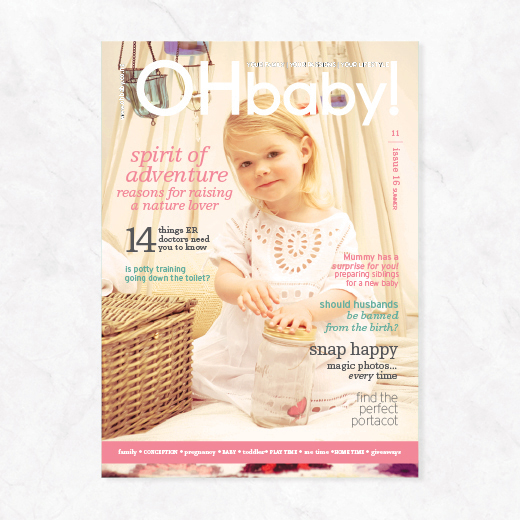Family trusts

Is it time to join the throngs setting up a family trust? Thousands of New Zealanders can't be wrong but look out for recent law changes, writes legal expert Kirsten Ferguson.
New Zealanders love trusts. With at least one trust per 18 New Zealanders and growing, the love affair is more intense here than pretty much anywhere. While popularity alone may not be a good reason to jump on the bandwagon, setting up a family trust can be a very smart way to help secure your financial future.
What is a family trust?
Family trusts are generally established by a family or family business. The "settlor" is the person or persons who establish the trust and transfers assets into it. Most commonly a family trust will have a primary asset - the family home - but a family trust can also take care of any other significant assets such as shares, holiday homes and/or investment properties.
The settlors also appoint trustees, who are entrusted with managing the trust assets for the benefit of the beneficiaries. Trustees can include the settlors, other family members or friends, professionals such as lawyers or a combination of all. By placing valuable assets in a trust, the settlors make themselves personally poor while making their trust rich. This can be very beneficial in relation to future relationship property claims, unexpected business debts or business failure, means-testing for government subsidies and/or other benefits.
Yet while the settlors may no longer technically own the assets, they maintain considerable control over and benefit from the assets, particularly if they are also a trustee. Trustees can decide how the assets are used and how best to provide for the beneficiaries.
What's in it for you?
Assets such as the family home that are legitimately brought within the protection of a family trust will generally remain unscathed from relationships and business ventures that might go wrong. Family trusts are also an important part of planning for your future and the future of your children. Family trusts can help you protect your assets from frivolous children and obtain residential care subsidies, while all the time ensuring your funds are applied in accordance with your wishes, whether for the care of special needs children, a particular charity or specific loved ones. And for those who value privacy in their financial dealings, trusts are also a good way to maintain confidentiality around financial affairs.
As with any form of financial protection, there are of course risks and limits involved, as well as costs. Family trusts are not the be-all and end-all and it can be difficult to undo a trust if you regret your decision further down the track. Before placing assets in trust, you therefore need to make sure you are clear in your mind about what your reasons are for setting one up, what the implications are and what assets you want to retain control over. This is particularly important if you are setting up a trust with another person or transferring joint assets.
Things to watch out for
With recent law changes family trusts are no longer considered untouchable. Government policy now recognises that the use of trusts in some circumstances may be inappropriate and unfair. Some recent high-profile cases involving the perceived abuse of trusts by individuals with multi-million dollar trusts have given family trusts a bit of a bad name and may have implications for the operation of trust law in the future. Recent High Court decisions leave scope for the courts to look through a trust to its assets when assessing income for the purposes of government subsidies and claims by creditors. In addition, the Law Commission is currently reviewing trust law in New Zealand and changes seem likely.
Other changes
To create a trust, you need to transfer ownership of your assets to trustees of your choice (often this will be you, your partner and an independent person such as your lawyer). Then clearly record what the trustees can and cannot do and who is to benefit from the trust.
Transferring assets to a trust has in the past been a rather complicated exercise due to the need to avoid gift duty. Gift duty is a significant tax payable on gifts of more than $27,000 per year. Taking the family home as an example, the traditional way to go about transferring ownership of the family home to a family trust was to enter into a sale and purchase agreement with the trust and loan the trust the money to buy the property. By transferring the assets for value there is no gift as the settler still owns the debt. This debt would then be gradually forgiven at the permissible rate of $27,000 per year (or $54,000 if the home is jointly owned by two people).
However, Parliament has recently passed legislation to abolish gift duty from last October. With gift duty gone, it will be considerably easier and quicker to transfer property to a trust. It will be possible to gift the whole of the family home and all significant assets to the trust in one go, without liability for gift duty. Despite this being possible, a slower gifting strategy may still be in your best interests, especially (for example) if you are concerned about residential care for you in your later years.
When in business
If either you or your partner is in business as a sole trader or a professional without limited liability, you should consider drawing a clear line between the family life you have built for yourself and the inevitable risks of business life. Without a family trust, your home and other significant family assets are exposed to creditors in the face of any professional liability claims for unexpected business or other debts, or negligence.
Before transferring any assets to a trust, you need to be satisfied that you are solvent, able to pay your debts and that you should be able to continue to do so for at least the subsequent two and, in some cases, five years.
While it used to be relatively easy to avoid creditors by hiding assets away in a trust, there has recently been a shift in favour of creditors. The courts are becoming more willing to engage in "trust-busting" exercises in circumstances where assets have been gifted to trusts intentionally to avoid a creditor getting at the asset.
When relationships go sour
You do not need to be in business to make a family trust work for you. The number of family trusts has surged since property relationships legislation made the equal splitting of property the default rule for all marriages, and the growth has been exponential since the equal-sharing regime was extended to civil unions and de facto relationships.
While the purpose of the equal-sharing regime is to achieve a just result between partners, there are many situations where equal sharing results in less than ideal consequences. It is often safer to protect separate property from future relationships rather than relying on yourself to have the good sense to prepare for the worst during the emotionally charged "honeymoon period" of a new relationship.
Family trusts ring-fence property from relationship property claims. While there are some exceptions in cases of relationship breakdowns, trusts are still particularly effective at protecting your property from your children's partners in the event of their relationships failing. As parents wishing to care for your children, you could well seek to shield family property from the future partners of your children, especially those partners of relatively short duration.
Setting up a family trust is not something that should be done at home. If you think you need one, have a chat to your lawyer or accountant to confirm how to make it work best for you.
|
Kirsten Ferguson is a commercial lawyer in the Wellington office of Duncan Cotterill. |

AS FEATURED IN ISSUE 16 OF OHbaby! MAGAZINE. CHECK OUT OTHER ARTICLES IN THIS ISSUE BELOW

















